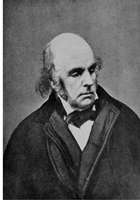On Anne Allen Comments
The wind blew keenly from the Western sea,
And drove the dead leaves slanting from the tree--
Vanity of vanities, the Preacher saith--
...
Read full text
A great poem on death and every line is so encheering.
I agree with Frank - or - one of the Franks below.... Form always, always, always robs content. Diving into form poetry is a balance between the two. I don't know if anyone else noticed the odd jumps in the above poem due to Fitzgerald's intention to stay in form. On the other hand free-form poetry can be even more difficult - needing to utilize many methods to charm the reader...All of which makes poetry an art - unlike emulating a stoic geometric world - as a computer emulates a chess player. Poetry always has been an always will be art - in all form - and the odd jumps above are simply Fitzgerald's brush strokes...
I liked the poem. I gave it a high rating. A good many of my favorite poems are regular in one way or another, like this one though not quite so strained. But I would never encourage young poets to begin by imitating someone like Fitzgerald, or poems like this one. Not to begin with, at least. For efforts to achieve those regularities often miss the mark, and when they do, the effect is disharmony and artificiality. I grew up on poems of regular rhythmic, metrical, stanzaic, and rhyming patterns. I try to like them still. I praise them often. But almost always they strike a note that rattles me. A poem of this seriousness somehow seems dispassionate when so much attention has obviously been lavished on rhythm, meter, stanza form, and especially rhyme - matters of mere form, not substance or deep passion. The human voice is slighted. Labored rhymes, especially, croak, like a frog in the pantry: falling leaves among / season fade and sung; laughter kind / winter wind. We do not go the falling leaves among; we may smile a pleasant smile, but we do not laugh the laughter kind. |
I grew up on poems of regular rhythmic, metrical, stanzaic, and rhyming patterns. I try to like them still. I praise them often. But almost always they strike a note that rattles me. A poem of this seriousness somehow seems dispassionate when so much attention has obviously been lavished on rhythm, meter, stanza form, and especially rhyme - matters of mere form, not substance or deep passion. The human voice is slighted. Labored rhymes, especially, croak, like a frog in the pantry: falling leaves among / season fade and sung; laughter kind / winter wind. Oh, don't misunderstand. I liked the poem. I gave it a high rating. A good many of my favorite poems are regular in one way or another, though not quite so strained. But I would never encourage young poets to begin by imitating someone like Fitzgerald, or poems like this one. Not to begin with. For efforts to achieve those regularities often miss the mark, and when they do, the effect is disharmony and artificiality. We do not go the falling leaves among; we may smile a pleasant smile, but we do not laugh the laughter kind.

No voice can charm thee, death. A glowing tribute to death itself.